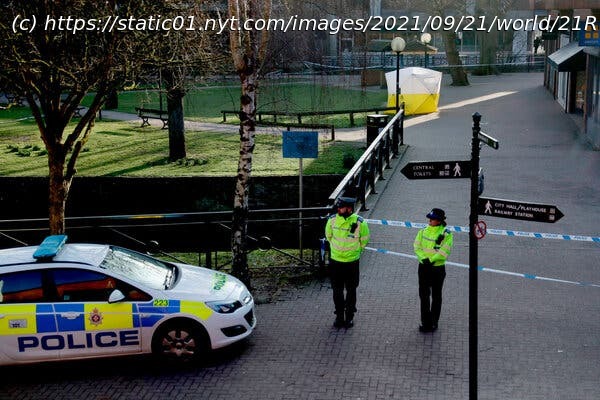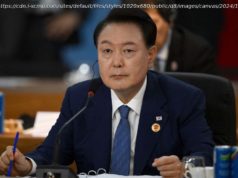The authorities added a suspect in the attempted assassination of Sergei V. Skripal in 2018. Separately, a European court blamed Russia for Alexander V. Litvinenko’s murder in 2006.
British counterterrorism police announced criminal charges against a senior Russian military intelligence officer on Tuesday for the attempted assassination of a former Russian spy who was poisoned in England in 2018 with a deadly nerve agent. Breaking with past practice, the police identified the officer by his real name, Denis Sergeev, instead of the alias he used to enter the United Kingdom on March 2, 2018. That was two days before the former Russian spy, Sergei V. Skripal, and his daughter Yulia collapsed on a park bench in the English town of Salisbury. Mr. Sergeev is the third officer to be charged in the poisoning of Mr. Skripal. Months after the poisoning, British authorities charged two officers, identified by the aliases Ruslan Boshirov and Aleksandr Petrov, with carrying out the attack by applying the nerve agent, known as Novichok, to the doorknob at Mr. Skripal’s home in Salisbury. All three are members of Unit 29155, a division within Russia’s military intelligence agency, known as the G.R.U., that specializes in sabotage and assassination. “We will not let this go,” Priti Patel, the British home secretary, said in a statement to Parliament on Tuesday, describing the poisoning as “an appalling event that shook the entire country and united our allies in condemnation.” The charges in the Skripal case came on the same day that the European Court of Human Rights ruled that Russia was responsible for the 2006 killing of another former intelligence officer, Alexander V. Litvinenko, who was poisoned when Russian operatives put a radioactive isotope in his tea at a London hotel. While Russia has repeatedly denied involvement, both poisonings have come to define Moscow’s relationship with the West. The first awoke the Western security establishment to the recklessness of Russian spycraft under President Vladimir V. Putin, while the second showed that such covert actions had become Kremlin policy, touching off a Cold War-style confrontation that is still reverberating. In both cases, the motivation for the attacks appeared to be revenge, a driving force behind many Russian intelligence operations abroad, according to Western security experts. Mr. Litvinenko, a former operative in Russia’s domestic intelligence service, the F.






